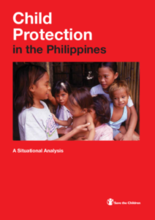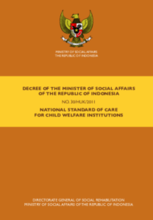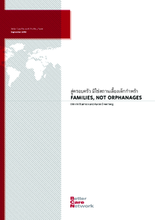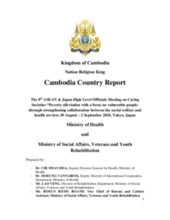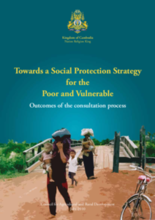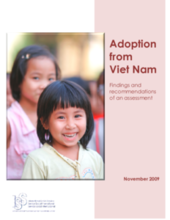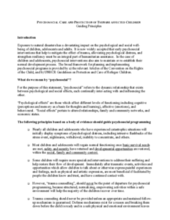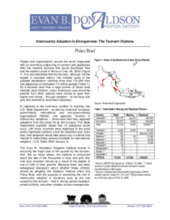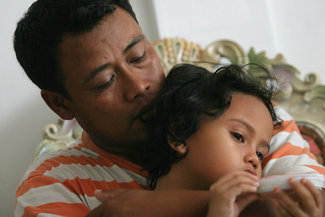

Displaying 651 - 660 of 753
This situational analysis was commissioned by the Child Protection Initiative as a preliminary exercise to develop evidence-based recommendations to guide Save the Children in the Philippines to develop interventions. Priority areas are children in residential care, children in armed conflict and disasters, children in situations of migration (including for trafficking purposes), and children in exploitative and hazardous work conditions.
Indonesia’s National Standards of Care for Child Welfare Institutions is a crucial policy instrument, drafted in response to the recommendations of the United Nations Committee on the Rights of the Child, regulating the provision of alternative care for children.
This manual offers a training session targeted at policy makers, professionals and paraprofessionals who are already working on programs to support children without appropriate care, or who may begin work in this area. This workshop focuses on children in developing contexts, who require support within their families and those who need an alternative care placement.
"In Cambodia, as in other parts of the globe, orphanages are a booming business trading on guilt," writes Ian Birrell in this article for the Guardian that discusses the harms of orphanage tourism.
With particular attention to lower income countries, Families, Not Orphanages examines the mismatch between children’s needs and the realities and long-term effects of residential institutions.
This report from the Cambodian Ministry of Health and Ministry of Social Affairs, Veterans and Youth Rehabilitation outlines the efforts of the Cambodian government to address the needs of vulnerable people.
This Note provides background and technical information on social protection in Cambodia to inform the development of a national social protection strategy for the poor and vulnerable by the Council for Agricultural and Rural Development (CARD).
Independent assessment of the situation of Intercountry adoption in Vietnam.
Guidance on use of early psychosocial interventions in humanitarian responses to help to mitigate the effect of trauma, alleviating psychological distress, and strengthen resiliency.
The Adoption Institute offers this policy brief, with the purpose of examining the role of intercountry adoption in situations such as the one caused by the tsunami – that is, during natural disasters, armed conflicts, and other complex human emergencies

